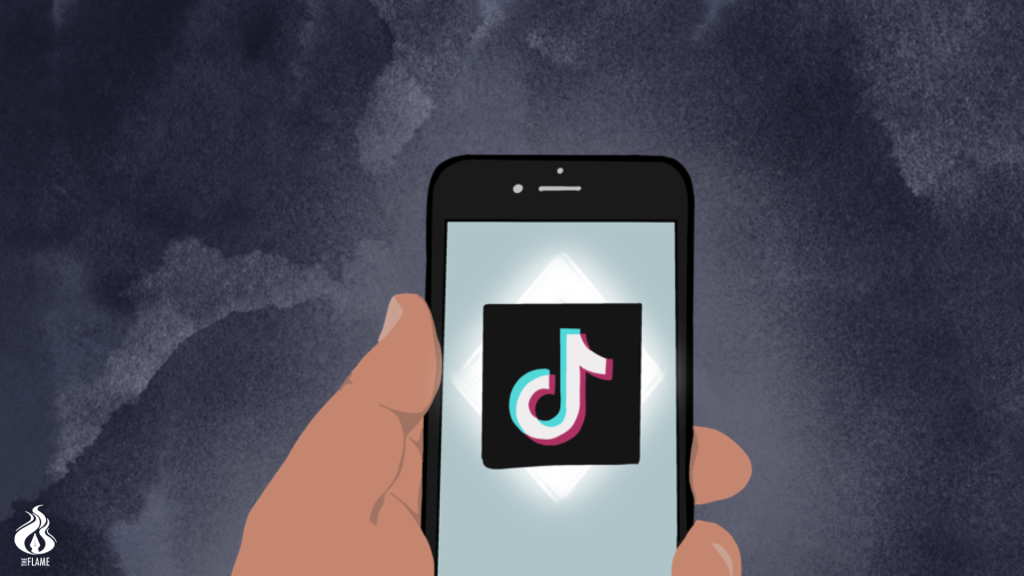
IDLE AND isolated, the college student robotically scrolls to the next ten-second thrill served to her on a silver smartphone.
During the height of pandemic lockdowns, literature student Maxine (not her real name) was a constant user of the viral social media application TikTok. It allowed her to consume large amounts of targeted short-form videos and even create her own.
For users like Maxine, Tiktok was both a distraction and a companion, a temporary respite from pandemic-induced anxieties. It has also become a celebrity factory, a provider of the proverbial 15-minutes of fame.
And while Tiktok served as a form of coping mechanism, concerns have been raised about its potential impact on its subscribers’ mental well being. There are fears that the application is turning its users into validation seekers, exposing them to appealing yet trivial content that distract and degrade.
And it does not take an expert to notice its consequences.
Describing her Tiktok activity at the peak of her usage, Maxine used the term “brainrot”— an internet slang referring to an individual’s hyperfixation over a piece of media, negatively affecting one’s mental faculties.
For You
When legal management student Erin (not her real name) first installed the app, she found it inspiring as both its viewing and creator tools helped her discover her skills.
Although she would not call herself a “content creator,” posting her own short videos felt gratifying.
Maxine thought TikTok’s charms lie in its own brand of humor, perhaps because it caters to current trends. She cited the ‘For You’ page feature, which curates one’s feed and suggests content based on the user’s interactions with previously viewed videos.
Though mostly for entertainment, the platform also has other benefits. A study titled “Analysis of the Positive and Negative Impacts of Using TikTok For Generation Z During Pandemic” found that the platform can encourage creativity among the youth and provide an environment for self-expression and education.
As a marketing instructor, University of Rizal System Professor Jonas Ynares finds TikTok helpful as it becomes a tool for teaching his subjects.
“Most of the time, we use TikTok as an example for marketing […] We study how [companies] use TikTok to advertise their products,” he said.
Temptation
However, as Erin and Maxine’s consumption became more frequent, the negative effects of the platform started to reveal themselves.
“It became a habit to be glued to my phone rather than to do my readings,” Erin said.
Determining when to study and when to use Tiktok became difficult for her as the transition to online learning erased the boundaries between school and rest.
Erin and Maxine claimed that TikTok’s accessibility and usability have also affected their attention span as the temptation of opening the application was hard to resist since it is always readily available.
Maxine said her Tiktok consumption made it harder for her to study and to consume longer forms of media such as films and books.
“There’s a never-ending stream of TikToks that are optimized to hold your attention,” she said.
“It triggers that kind of dopamine response, that quick dopamine response through this bite-sized content.”
AB Guidance Counselor Leilanie Verzosa said the short duration of TikTok videos somehow makes it more addictive as users tend to be more engaged with the content they consume.
“Just like any addiction, it becomes a distraction to one’s productive time,” she said.
Diversion
Psychologist Nedy Tayag said Tiktok diverts rather than decreases the attention span of its users.
“Instead of being allocated for studies, their attention is diverted to using TikTok,” Tayag said. “Why? Because of its thrilling effect.”
She explained that since studying feels burdensome for students, they tend to be drawn to activities that quickly enhance their mood.
Verzosa shared similar sentiments, saying frequent TikTok usage prevents students from being productive. She said this “addiction” is aggravated by the online learning setup as reducing one’s screen time becomes more difficult.
Tayag said TikTok also distorts user’s notions as well. According to her, the unmoderated media hosted by the platform may harmfully influence the development of young impressionable users.
People who constantly post videos for the sake of interactions become dependent on the validation fellow users give them, she added. Such a behavior then results in a degraded view of themselves.
Verzosa pointed out that TikTok’s face filters raised beauty standards to an unrealistic level. She explained that the normalization of face enhancements in the platform pressures users to change their own standards of beauty, leading to insecurity.
“[TikTok] sets beauty standards too high that it becomes far from [reality]. So when the individual doesn’t meet such standards, they become disappointed, stressed, and anxious, which may even lead to depression,” Verzosa said.
For Ynares, TikTok is a “double-edged sword” because, despite its educational benefits, the application has also become a platform for spreading false information. Verzosa echoed this, saying the platform is being weaponized to distort history.
A huge portion of Tiktok’s users are susceptible to the platform’s negative effects. According to statistics published by Wallaroo Media, users from ages 10 to 19 constitute 32.5% of over 1 billion active monthly users as of March 2023.
Despite the potential harmful effects of Tiktok, Tayag said users do not necessarily have to disconnect from it completely.
“You use your judgment,” she said.
“Analyze the negative parameters based on its effect on you […] and how you will enjoy this activity in a way that it will enhance your self-image.”
Versoza and Ynares emphasized the importance of using the app in moderation. According to them, anything in excess can be harmful.
Erin still considers herself a regular user of TikTok. However, she is considering the possibility of deleting the app in the future once it fully interferes with her ability to accomplish her academic requirements.
In contrast, Maxine has not been using TikTok since September 2021. She claimed she has since been more emotionally connected to the hobbies she genuinely liked.
“If you don’t see it as a nuisance, if TikTok is a breathable space for you and it benefits you positively, then why not?” she said.
“But if you can see that it gets in the way of your daily interactions [and] activities, then maybe it’s time to rethink what this app does to you.” F



